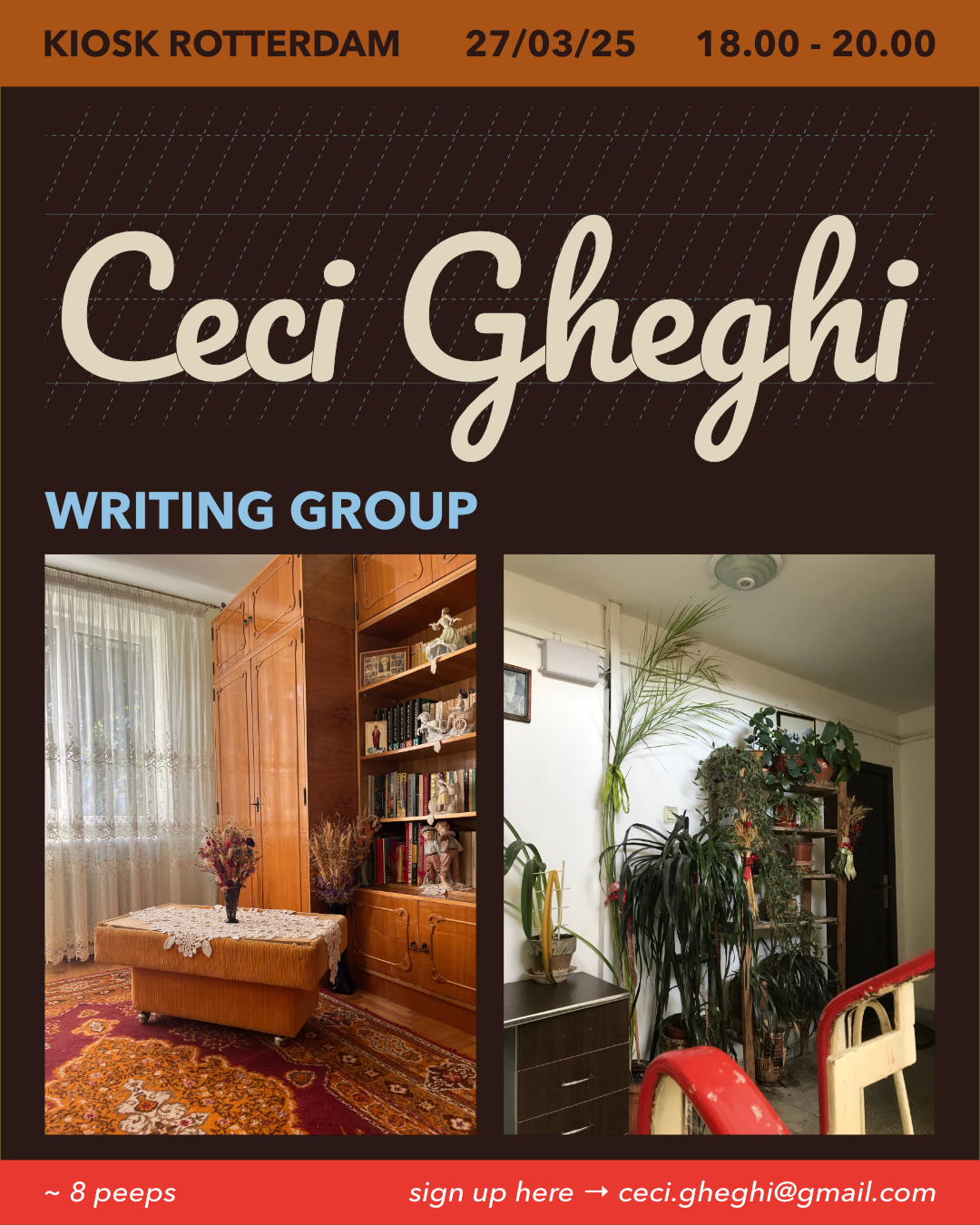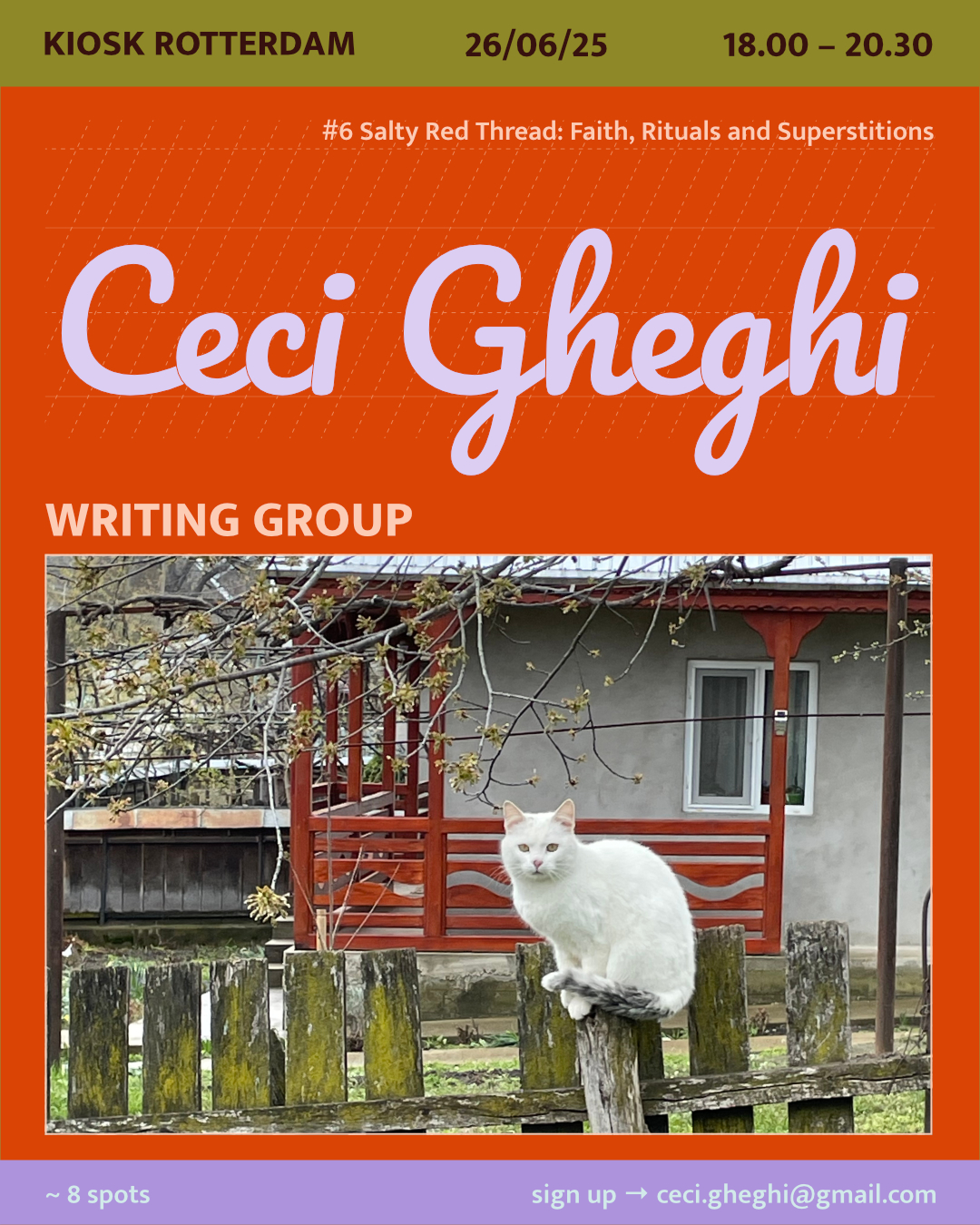CORRUPT
a three-part experimental writing workshop on rurality and post-socialist belonging
November ‘25
This workshop invites people with connections or interest in rural places to explore the quiet, often-unspoken forms of intimacy, solidarity, and refusal that shape post-socialist rural life.
Over three sessions (4 hours each), we move from theory to text to making: theoretical and social prompts drawn from Eastern European and queer feminist thinking inform the writing exercises; we develop those texts through editing and feedback; and finally, we make a small collective publication (zine) that captures the work and methods we’ve tested.
No prior experience required, lunch included (vegetarian, vegan on request), donation-based or free to attend. Language: english, romanian, basic dutch. Accessibility note: venues are not wheelchair accessible.
Drop me a text at:writing.rural.relations@gmail.com
Priority given to those who can attend all 3 sessions. Research supported by CBK Rotterdam.
The title CORRUPT is borrowed from Veda Popovici’s essay “Solidarity in Illegality: How the Corrupt East Is Already a Queer East” which uses notions of corruption as a way to describe the informal, affective, and often invisible solidarities that sustain life beyond state or capitalist logics.
SCHEDULE
-
Session 1: Sunday 2nd November (10.30 - 14.30)— at
Session 2: Sunday 9th November (10.30 - 14.30) — at
Session 3: Friday 12th December (10.30 - 14.30) — at
About the venues:
KIOSK Bookshop
KIOSK Rotterdam is a bookshop, (riso) print workshop, and Multi Tool Press. The selection hosts radical/critical theory, fiction, poetry and self-publishing practices.
Made possible by a financial contribution from CBK Rotterdam
writing, rural, east europe, post-socialism, workshop
Over three sessions (4 hours each), we move from theory to text to making: theoretical and social prompts drawn from Eastern European and queer feminist thinking inform the writing exercises; we develop those texts through editing and feedback; and finally, we make a small collective publication (zine) that captures the work and methods we’ve tested.
No prior experience required, lunch included (vegetarian, vegan on request), donation-based or free to attend. Language: english, romanian, basic dutch. Accessibility note: venues are not wheelchair accessible.
Drop me a text at:
writing.rural.relations@gmail.com
Priority given to those who can attend all 3 sessions. Research supported by CBK Rotterdam.
The title CORRUPT is borrowed from Veda Popovici’s essay “Solidarity in Illegality: How the Corrupt East Is Already a Queer East” which uses notions of corruption as a way to describe the informal, affective, and often invisible solidarities that sustain life beyond state or capitalist logics.
SCHEDULE
-Session 1: Sunday 2nd November (10.30 - 14.30)— at
WET, Rotterdam
Introduces 3–4 theoretical prompts (examples: post-socialist subjectivities, corruption, quiet resistance, fugitive intimacies) through short readings and conversation to open writing prompts.Session 2: Sunday 9th November (10.30 - 14.30) — at
WET, Rotterdam
Peer-editing and development session using editorial exercises to deepen drafts.Session 3: Friday 12th December (10.30 - 14.30) — at
Kiosk Rotterdam, Rotterdam
Hands-on making session: layout, folding, and simple binding to produce a small-run riso zine.About the venues:
WET
WET is a Rotterdam-based collective and project space for artists’ moving image, founded in 2019 by Marta Hryniuk, Erika Roux, Anna Łuczak, Nick Thomas and Sophie Bates. WET is a platform for public events, with a focus on artworks which challenge existing orthodoxies and propose alternative perspectives, and supports the production of moving image works.KIOSK Bookshop
KIOSK Rotterdam is a bookshop, (riso) print workshop, and Multi Tool Press. The selection hosts radical/critical theory, fiction, poetry and self-publishing practices.Made possible by a financial contribution from CBK Rotterdam
writing, rural, east europe, post-socialism, workshop
What stories take root in rural relations—and how might writing help us trace them?
A slow-growing series of writing workshops exploring rural life, memory, and imagination. Each session centres on a theme—kinship, grief, or harvest—and invites participants to write from personal experience, collective rituals, and everyday observations.
Gatherings follow a simple rhythm: we eat together, write through a series of gentle prompts, and share what we choose to. The space is informal, welcoming, and open to anyone curious about rural storytelling in all its forms and languages, no writing experience needed.
Initiated and organised in collaboration with Myvillages & Seasonal Neighbours, the group grows from the belief that rural stories deserve time, attention, and collective care.
The title is borrowed from Seasonal Matters: Rural Relations, the book is published by Seasonal Neighbours. It emphasises the social and emotional ties that shape rural life.
You can reach me at writing.rural.relations@gmail.com
A slow-growing series of writing workshops exploring rural life, memory, and imagination. Each session centres on a theme—kinship, grief, or harvest—and invites participants to write from personal experience, collective rituals, and everyday observations.
Gatherings follow a simple rhythm: we eat together, write through a series of gentle prompts, and share what we choose to. The space is informal, welcoming, and open to anyone curious about rural storytelling in all its forms and languages, no writing experience needed.
Initiated and organised in collaboration with Myvillages & Seasonal Neighbours, the group grows from the belief that rural stories deserve time, attention, and collective care.
The title is borrowed from Seasonal Matters: Rural Relations, the book is published by Seasonal Neighbours. It emphasises the social and emotional ties that shape rural life.
You can reach me at writing.rural.relations@gmail.com
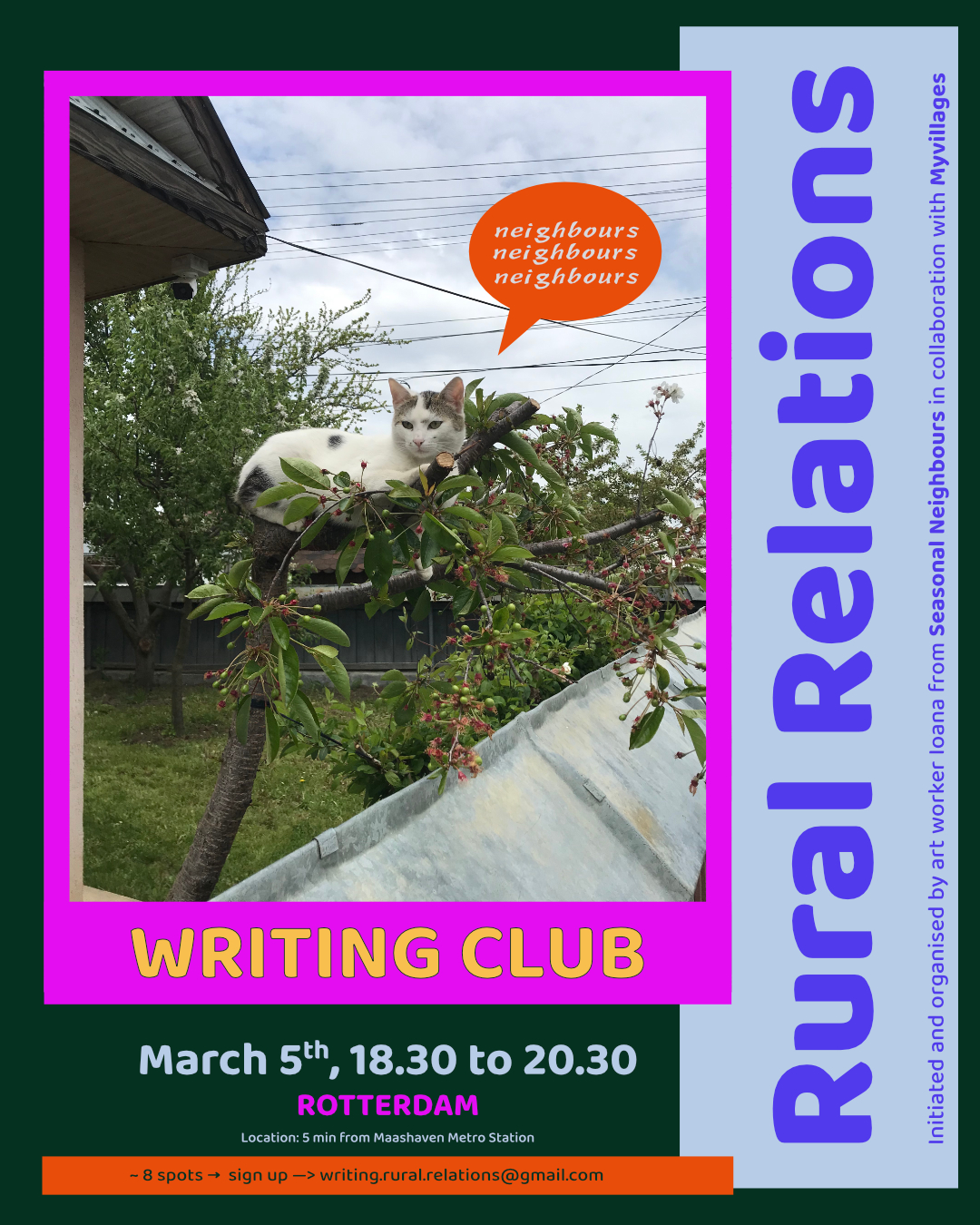
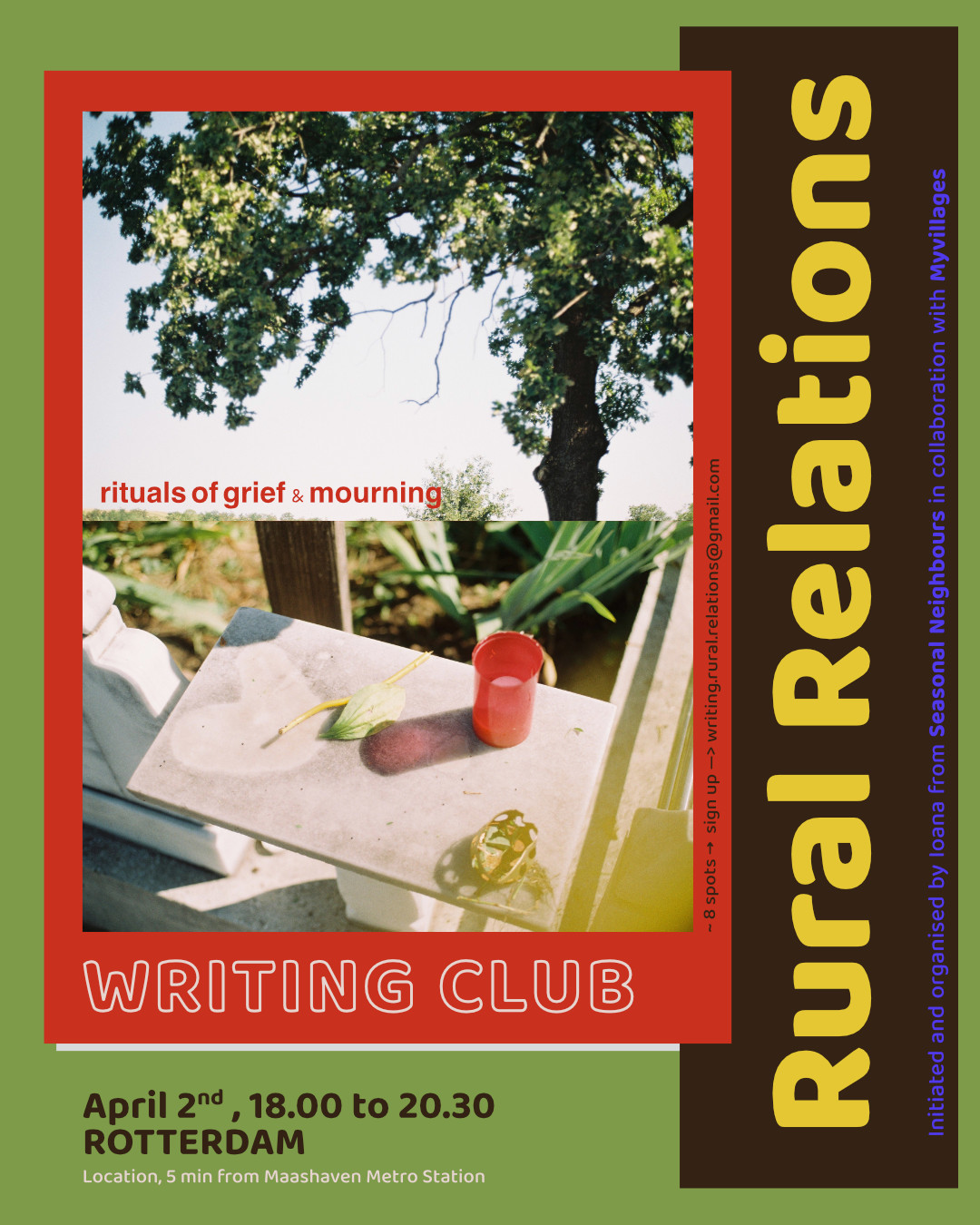
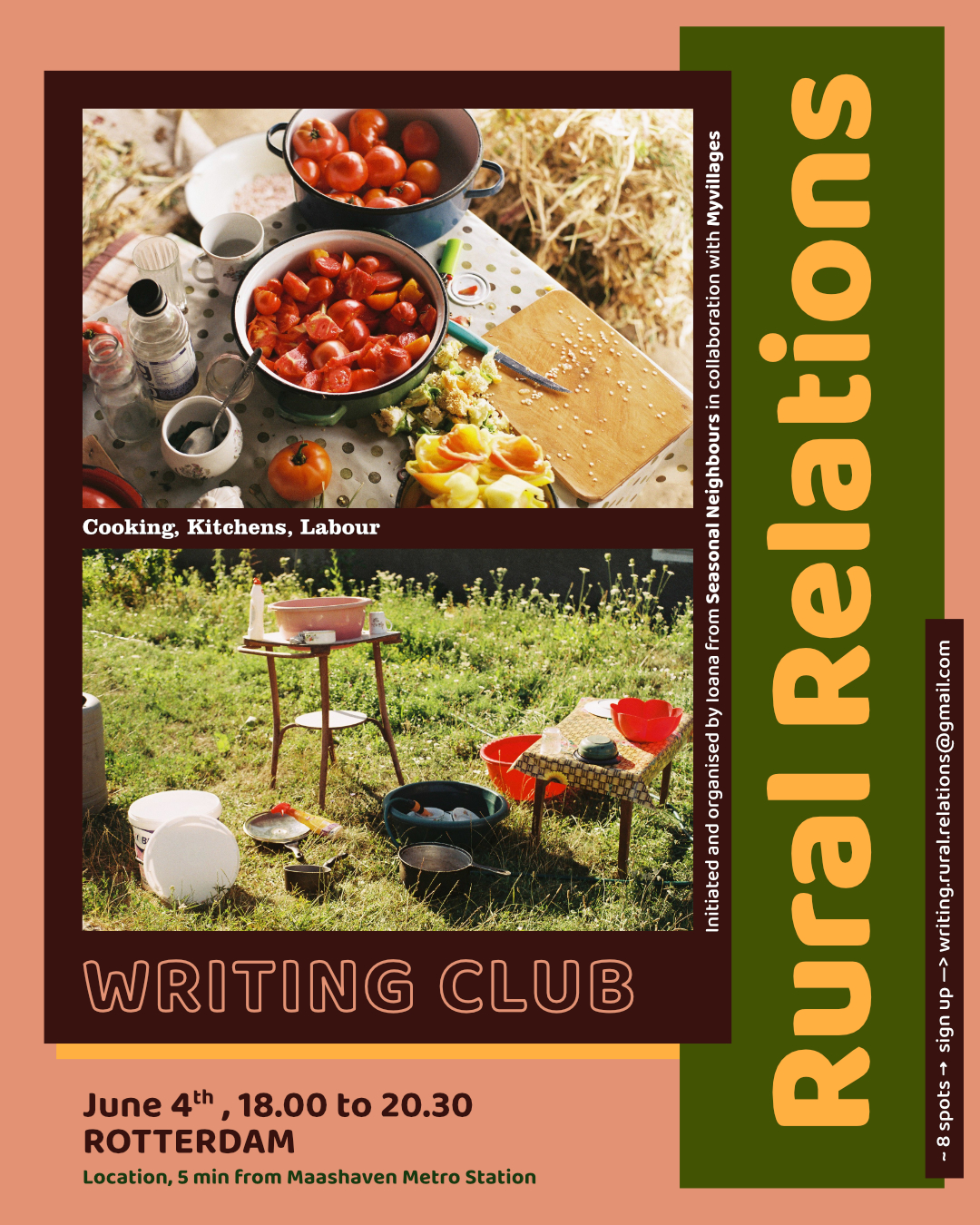
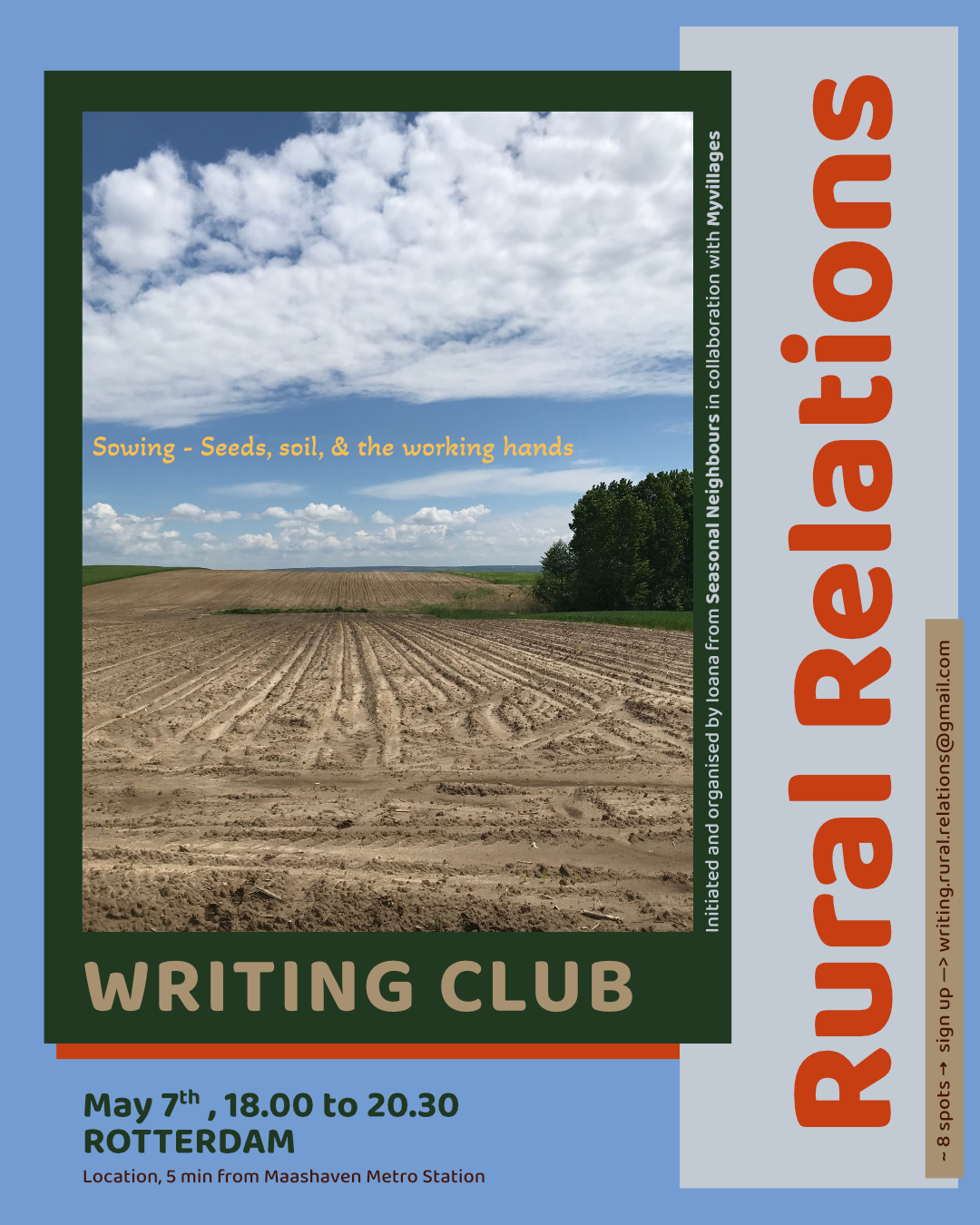
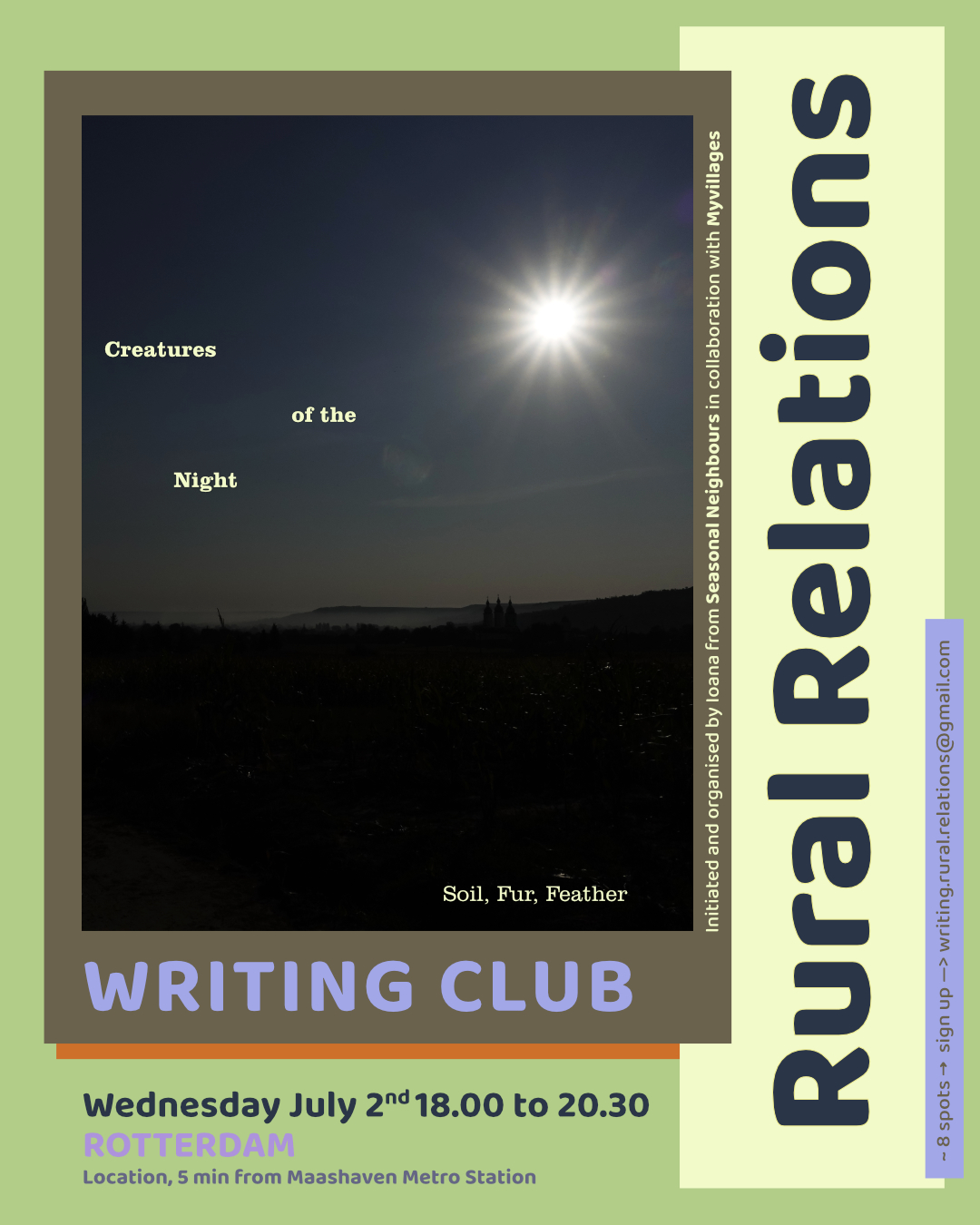
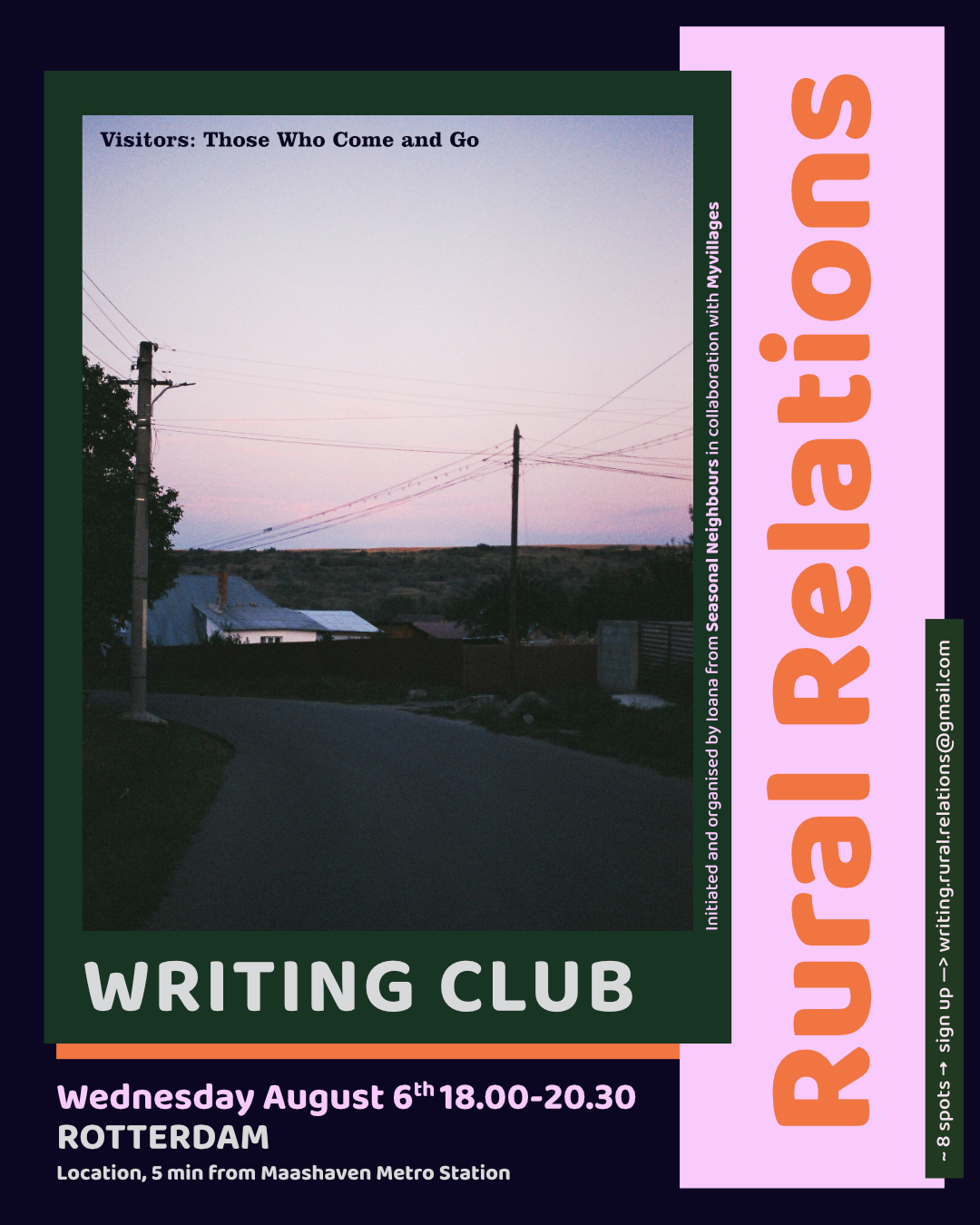
Ceci Gheghi Writing Group
February ‘25
Rotterdam-based writing group for diasporic voices from Eastern Europe and the Balkans. Through themed sessions, we explore memory, place, and language shaped by migration, the diasporic experience, and cultural hybridity. Each session departs from a sensory or spatial theme—flavours, interiors, non-stop shops—to prompt reflection and creative experimentation. Rooted in collective storytelling, we create a space where personal histories, overlooked rituals, and untranslatable emotions become the fabric of new narratives.
*The name comes from Romanian phonetics—"ce, ci, ghe, ghi"—sounds that mark difference, mistranslation, and the small linguistic frictions that shape identity. Like these sounds, our writing exists in the in-between: between languages, homelands, and selves.
writing, rural, east europe, post-socialism, workshop
*The name comes from Romanian phonetics—"ce, ci, ghe, ghi"—sounds that mark difference, mistranslation, and the small linguistic frictions that shape identity. Like these sounds, our writing exists in the in-between: between languages, homelands, and selves.
writing, rural, east europe, post-socialism, workshop


